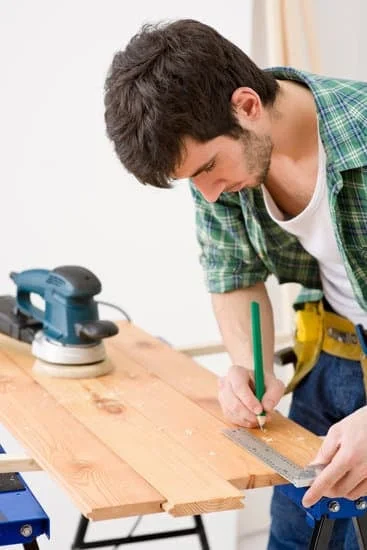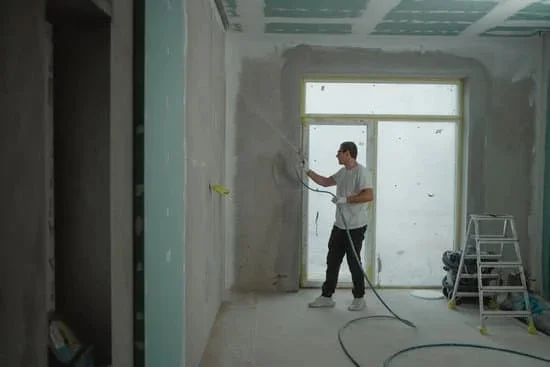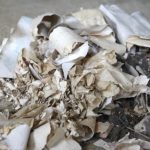Driveway sealing is a home improvement that enhances the appearance and longevity of your driveway. Whether you have an asphalt, concrete, or paver driveway, sealing it can protect against weather damage, stains, and cracks. This article will explore the benefits of driveway sealing, different types of sealers, the process of sealing a driveway, costs associated with the project, as well as whether to tackle it as a DIY project or hire a professional.
When it comes to home improvement projects, often overlooked is the maintenance and care of the exterior surfaces such as driveways. Driveway sealing plays a critical role in preserving and extending the life of your driveway while also enhancing its overall appeal.
In the following sections, we will delve into the specific benefits of driveway sealing including longevity, durability, and aesthetics. We will also explore factors to consider before embarking on this home improvement project. So if you are considering this task for your home’s exterior maintenance or enhancement needs, keep reading to learn about different types of sealers and how to determine if this project is right for you.
Benefits of Driveway Sealing
Driveway sealing is indeed a crucial aspect of home improvement. The benefits of driveway sealing are threefold: longevity, durability, and aesthetics. When a driveway is properly sealed, it can last for many years, withstanding the natural elements and heavy use. This not only protects your investment in your home but also enhances the overall curb appeal.
Firstly, longevity is one of the key benefits of driveway sealing. By creating a protective barrier on the surface of the driveway, sealant helps to prevent damage from water, oil, UV rays, and other environmental factors that can cause deterioration over time. This protection extends the life of the driveway significantly, saving homeowners from costly repairs or replacements down the line.
Secondly, durability is another important benefit. A sealed driveway is more resistant to cracking, pitting, and crumbling. By filling in small cracks and preventing new ones from forming, sealant helps to maintain a smooth and even surface that can withstand heavy vehicles and foot traffic.
Finally, aesthetics play a major role in the benefits of driveway sealing. A freshly sealed driveway looks clean, polished, and well-maintained. The dark black appearance of an asphalt driveway after sealing or the rejuvenated color of stone or concrete after being sealed adds to the overall visual appeal of a property.
| Benefit | Description |
|---|---|
| Longevity | Sealing helps extend the life of the driveway by protecting it from water, oil, UV rays |
| Durability | Prevents cracking and increases resistance to damage from heavy vehicles and foot traffic |
| Aesthetics | Leaves driveways looking clean, polished and well-maintained with enhanced visual appeal |
Types of Driveway Sealers
When it comes to driveway sealing as a home improvement project, selecting the right type of sealer is crucial for achieving the desired results. There are different types of driveway sealers available in the market, each designed for specific materials such as asphalt, concrete, and pavers. Choosing the right sealer for your driveway will not only enhance its appearance but also extend its lifespan by providing protection against harsh weather conditions, oil spills, and UV rays.
Here are the main types of driveway sealers to consider:
- Asphalt Sealers: These sealers are specifically formulated to protect and enhance asphalt driveways. They provide a protective layer that prevents water penetration and minimizes damage from freeze-thaw cycles. Asphalt sealers also help in restoring the dark black color of the driveway, giving it a fresh look.
- Concrete Sealers: Designed for concrete driveways, these sealers offer excellent protection against water penetration, staining, and deicing chemicals. They can also enhance the natural color of the concrete while providing durability and resistance to abrasion.
- Paver Sealers: Paver sealers are ideal for enhancing and protecting interlocking pavers used in driveways. These sealers help in stabilizing joint sand, preventing weed growth, and protecting pavers from fading due to UV exposure. They also provide stain resistance against oil spills and other contaminants.
Choosing the right type of sealer for your driveway depends on the material it is made of and its specific maintenance needs. It’s essential to carefully consider these factors before making a decision on which sealer to use for your home improvement project. By selecting the appropriate sealer, you can ensure that your driveway remains attractive and well-protected for years to come.
Steps to Sealing a Driveway
Driveway sealing is a home improvement task that is often overlooked but can make a significant difference in the overall appearance and functionality of your property. Not only does it enhance the aesthetics of your driveway, but it also helps maintain its longevity and durability. Sealing your driveway can protect it from harsh weather conditions, prevent cracks and deterioration, and ultimately increase the lifespan of the surface.
The first step in sealing your driveway is proper preparation. This involves cleaning the surface thoroughly to ensure that the sealer adheres properly. Any oil stains, dirt, or debris should be removed using a pressure washer or cleaning solution.
Once the surface is clean and dry, the application process can begin. Depending on the type of sealer you choose – whether it’s asphalt, concrete, or paver sealer – you’ll need to follow specific application instructions to ensure an even and effective coat.
After applying the sealer, it’s crucial to allow adequate time for drying. This usually takes at least 24 hours, during which time you should avoid walking or driving on the sealed surface. Proper drying allows the sealer to cure and bond with the driveway, providing maximum protection and longevity. While this process may seem simple enough for a DIY project, some homeowners may opt for professional sealing services to ensure a flawless finish and optimal results.
| Benefits | Details |
|---|---|
| Longevity | Driveway sealing helps increase the lifespan of the surface by protecting it from deterioration. |
| Durability | Sealed driveways are more resistant to cracking and damage caused by harsh weather conditions. |
| Aesthetics | Sealing enhances the overall appearance of your property by giving your driveway a fresh and well-maintained look. |
Cost of Driveway Sealing
When considering driveway sealing as a home improvement project, it is important to take into account the cost involved. The cost of driveway sealing can be broken down into three main components: materials, labor, and long-term savings.
Materials: The cost of materials for driveway sealing can vary depending on the type of sealer used and the size of the driveway. Typically, asphalt sealers are less expensive than concrete sealers, but they may require more frequent reapplication. Additionally, the quality and brand of the sealer can also impact the cost of materials.
Labor: Hiring a professional to seal your driveway will incur additional costs in terms of labor. The labor costs for driveway sealing will depend on factors such as the size of the driveway, the condition of the surface, and any necessary repairs or preparation work that may be required before sealing.
Long-Term Savings: While there is an initial cost associated with driveway sealing, it is important to consider the long-term savings that come with properly maintaining your driveway. By preventing cracks, potholes, and other damage caused by weather and regular use, driveway sealing can help prolong the life of your pavement and reduce the need for costly repairs or replacements in the future.
- Choosing high-quality sealant materials
- Considering professional labor costs vs DIY
- Calculating potential long-term savings from proper maintenance
DIY vs Professional Sealing
Deciding whether to seal your driveway on your own or hire a professional is an important consideration when it comes to home improvement. Both DIY and professional sealing have their pros and cons, so it’s essential to weigh these factors before making a decision.
DIY Driveway Sealing
One of the biggest advantages of sealing your driveway on your own is the cost savings. DIY driveway sealing allows you to purchase materials and complete the project at a fraction of the cost of hiring a professional. Additionally, some homeowners enjoy the satisfaction that comes with completing a home improvement project themselves.
However, there are also potential drawbacks to consider with DIY driveway sealing. The process can be time-consuming and physically demanding, especially for larger driveways. There’s also a learning curve involved in properly applying the sealer, which could result in uneven coverage if not done correctly.
Professional Driveway Sealing
Hiring a professional to seal your driveway comes with its own set of benefits. Professional contractors are experienced and knowledgeable in properly preparing and applying sealant, ensuring high-quality results. Their expertise also means they can complete the job more efficiently, saving you time and effort.
On the other hand, the cost of professional driveway sealing is higher than doing it yourself. However, this expense often comes with guarantees or warranties on the work performed, providing added peace of mind. Additionally, scheduling and coordinating with a contractor may require flexibility on your part.
Ultimately, whether you choose to take on driveway sealing as a DIY project or hire professionals will depend on your specific needs, budget, and available time. It’s important to carefully consider these factors before making a decision that best suits your home improvement goals.
Factors to Consider Before Sealing
When considering driveway sealing as a home improvement project, it is important to take into account various factors that can impact the success and longevity of the sealant. Factors such as climate, age of the driveway, and regular maintenance play a crucial role in determining the effectiveness of the sealing process.
Climate
The climate in which your home is located can greatly affect the durability of the driveway sealer. In areas with extreme cold or hot temperatures, the expansion and contraction of the driveway material due to temperature changes can cause cracks and damage that may compromise the sealant. It is important to choose a high-quality sealant that is specifically designed to withstand the climate conditions in your area.
Age of the Driveway
The age of your driveway is another important factor to consider before sealing. Older driveways may have accumulated more wear and tear over time, making it essential to properly clean and prepare the surface before applying any sealant. Cracks, stains, and other imperfections should be addressed before sealing to ensure that the sealant adheres properly and provides effective protection for the driveway.
Maintenance
Regular maintenance of your driveway is key to ensuring that the sealant remains effective over time. Proper cleaning, resealing when necessary, and addressing any damage promptly can help prolong the life of your driveway and prevent costly repairs down the line. Neglecting regular maintenance can lead to premature deterioration of both the driveway material and the sealant.
Considering these factors before proceeding with driveway sealing as a home improvement project can help you make informed decisions about the type of sealant to use, when to apply it, and how to maintain its effectiveness over time. By taking these factors into consideration, you can ensure that your investment in driveway sealing yields long-lasting benefits for your home.
Conclusion
In conclusion, it is clear that driveway sealing is a significant aspect of home improvement. The benefits of driveway sealing, including increased longevity, durability, and improved aesthetics, make it a worthwhile investment for homeowners. Whether using asphalt, concrete, or paver sealers, the proper application can enhance the overall appearance and condition of a driveway.

The cost of driveway sealing may seem daunting at first, but in the long run, the savings from avoiding extensive repairs or replacement are well worth it. Additionally, considering factors such as climate and upkeep before sealing can ensure the best results.
Ultimately, whether choosing to seal the driveway as a DIY project or hiring professionals for the job, homeowners should recognize that driveway sealing is indeed a home improvement effort that should not be overlooked. With its numerous benefits and potential long-term savings, incorporating routine driveway sealing into a home maintenance plan will help enhance the overall value and appeal of any property.
Frequently Asked Questions
What Is a Driveway Sealer Job Description?
A driveway sealer’s job description involves applying a protective coating to driveways to protect them from damage caused by water, oil, UV rays, and other external factors. This process helps extend the lifespan of the driveway and enhance its appearance.
Does Sealing a Driveway Really Help?
Sealing a driveway can indeed help by providing a barrier against moisture, chemicals, and natural elements that can cause damage over time. By sealing the driveway, homeowners can prevent cracks, potholes, and fading, thus saving money in the long run.
What Are the Negatives About Sealing Driveway?
Some negatives about sealing a driveway include the potential for it to become slippery when wet, especially if too much sealer is applied. Moreover, if not applied properly, it may lead to an uneven or blotchy appearance on the surface of the driveway. Additionally, there are environmental concerns associated with certain types of sealants.

I’m thrilled to have you here as a part of the Remodeling Top community. This is where my journey as an architect and remodeling enthusiast intersects with your passion for transforming houses into dream homes.





